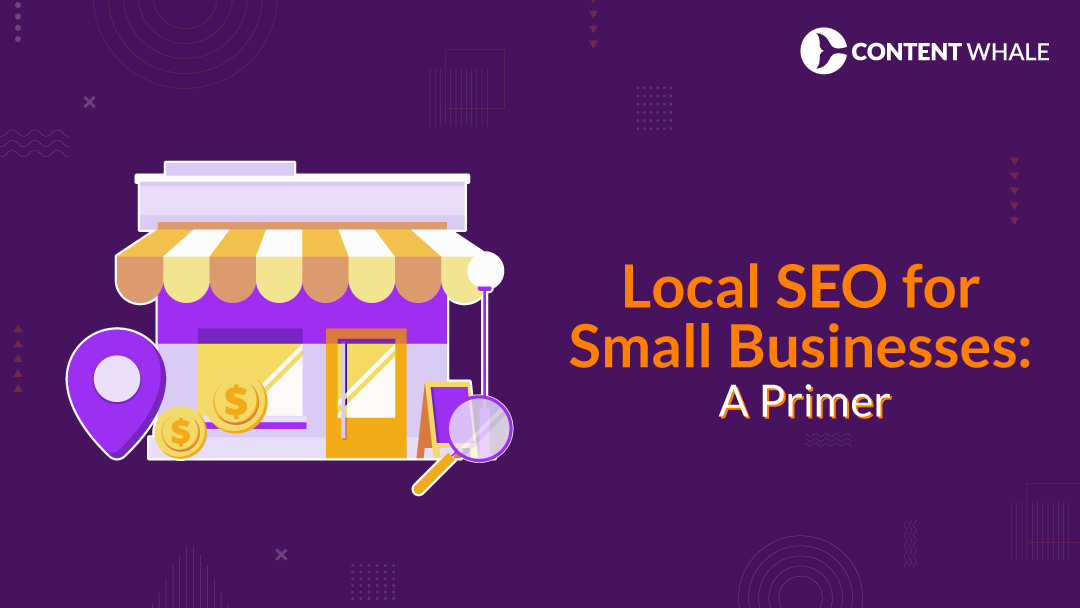AI search now answers nearly 60% of user queries without a click (Source). Tools like Google AI Overviews, Perplexity, and ChatGPT Search are changing how people consume information, giving instant summaries instead of long result pages. For brands, this means either getting cited in AI responses or losing visibility.
If your content is not cited in these AI summaries, you lose visibility even if you rank high in traditional search. The right SEO strategies for AI help you stay discoverable, cited, and trusted, even as user behavior changes.
This guide breaks down 7 actionable AI search optimization techniques you can implement right now, from building topical authority to formatting content for zero-click and search engine answers. By applying these strategies, you stay discoverable and trusted, even as AI becomes the default way users find information.
Understanding AI Search in 2026

Search is changing fast. In 2026, over 40% of all queries end as zero-click searches, where users get instant answers from AI-generated summaries (Source). To stay visible, brands must adopt bold SEO strategies for AI that match how engines like Google AI Overviews, Bing Copilot, and Perplexity work.
The Rise of Generative Search
Generative search engines don’t just list links, they summarize content and give direct answers. They rely on AI algorithms and content ranking signals like relevance, freshness, and credibility before including a source. This makes AI search optimization techniques key for improving brand presence in AI-driven results.
What Has Changed for SEO
Keyword-only pages struggle to rank because AI models analyze topical authority, user intent, and semantic context.
Risks & Opportunities for Brands
More zero-click searches mean fewer site visits, but pages optimized with the right SEO strategies can earn prime placement inside summaries — gaining exposure before traditional search results (Source).

7 Must-Know SEO Strategies for AI Search
AI search demands a different playbook. These 7 SEO strategies for AI help your content stay visible and trusted in AI-driven results.
1. Build Topical Authority
Sites rewarded by AI models cover a subject in depth. Creating content clusters around a single theme signals relevance and helps your site appear in summaries.
- Build pillar pages that answer broad questions
- Link to detailed sub-topics within the cluster
- Use semantic variations and FAQs for context
- Refresh content quarterly to maintain freshness
When brands apply this approach, they see higher inclusion in zero-click searches and better engagement from users who trust a comprehensive source.
Example: A SaaS brand that created a full “AI Marketing Hub” (pillar + 20 supporting blogs) saw a 300% increase in AI Overview mentions within 6 months (Source).
2. Use Structured Data & Semantic Markup
Structured data is one of the most reliable AI search optimization techniques. Schema markup helps AI interpret and classify your content for citation.
- Add schema (FAQPage, Article, HowTo) to every page
- Mark authors and publish dates for credibility
- Test using Google’s Rich Results Test to fix errors
Sites that combine schema with clear headings and scannable content are more likely to be chosen for answer features.
3. Optimize for Zero-Click & AI Summaries
More than half of searches now end without a click, but well-structured content can still bring visibility through summaries.
- Write short, direct answers under each heading
- Use lists, bullet points, and tables to make data easy to extract
Case in Point: A finance blog reformatted 80 articles into Q&A style and saw a 30% lift in AI Overview visibility without improving rankings.
4. Strengthen E-E-A-T Signals
AI models favor trustworthy sources, so building Experience, Expertise, Authoritativeness, and Trustworthiness is vital.
- Add detailed author bios, credentials, and links to professional profiles
- Cite original research, data, or case studies
- Encourage high-quality backlinks and mentions from reputable sites
By aligning with these techniques, your pages are more likely to be cited in generative summaries.
5. Improve Content Scannability & Conversational Optimization
AI models prefer content that is easy to read and process. Well-structured pages make extraction easier for AI and improve user experience.
- Break content into short paragraphs
- Use H2/H3 subheadings
- Add bullet points where possible
- Work in natural, conversational long-tail questions
- Include TL;DR summaries at the top or bottom
A 2024 NNGroup study found scannable content improved comprehension by 58% and engagement by 74%, boosting ranking signals (Source).
6. Get Technical SEO Ready for AI Search
Technical SEO impacts whether AI can easily access and interpret your content.
- Improve Core Web Vitals (LCP, CLS, INP)
- Enable HTTPS
- Create a clean, logical URL structure
- Use server-side rendering to make pages fully crawlable
Optimized sites give AI systems better context, increasing chances of inclusion in summaries.
7. Measure & Iterate with AI-Specific Metrics
AI search is not “set and forget.” Tracking performance ensures your strategy stays effective.
- Track AI citations and snippet appearances
- Monitor traffic from zero-click searches
- Refresh underperforming sections regularly
Brands that use this feedback loop stay ahead and consistently improve visibility.
| Strategy | Meaning | Key Actions | AI Search Impact |
| 1. Build Topical Authority | Cover topics in depth with clusters/pillars | Create clusters, interlink, update often | Higher inclusion in AI results |
| 2. Use Structured Data | Help AI read and classify content | Add FAQ, Article, HowTo schema; mark authors/dates | Boosts chance of AI citations |
| 3. Optimize for AI Summaries | Make content easy to lift into answers | Use short answers, lists, Q&A headings | Improves visibility in summaries |
| 4. Strengthen E-E-A-T | Build trust and credibility | Add expert bios, cite data, get backlinks | Improves content ranking signals |
| 5. Improve Scannability | Make pages quick to parse | Short paragraphs, clear headings, TL;DRs | Helps AI extract key info |
| 6. Technical SEO Readiness | Make site AI-crawler friendly | Fix Core Web Vitals, HTTPS, clear structure | Gives engines better context |
| 7. Measure & Iterate | Continuously refine approach | Track citations, refresh weak sections | Sustains AI search presence |
Once you implement these strategies, measure progress with the right metrics.

How to Measure Success in AI Search
Tracking performance ensures your SEO strategies for AI are delivering results. Without measurement, it’s impossible to know which efforts are improving visibility in AI-driven results.
Monitor AI Citations & Answer Inclusions
Use tools like SEOTesting, Authoritas, or custom scripts to track when your content appears in AI-generated summaries or AI Overviews. Create a baseline and measure monthly growth in citations.
Track Engagement Beyond Clicks
Even if zero click searches reduce direct traffic, monitor brand mentions, impressions, and share-of-voice. Measure dwell time and scroll depth on pages optimized with AI search optimization techniques to confirm that users find them helpful.
Measure Topical Authority Growth
Audit your content clusters quarterly with tools like MarketMuse or Clearscope that can help you identify gaps, improve semantic coverage, and boost AI algorithms and content ranking scores.
Conversion Metrics
Consistent tracking allows you to refine content formats, test new schema types, and strengthen the sections most likely to win citations.
| Metric | What to Track | Why It Matters |
| AI Citations | Inclusion in Google AI Overviews, Perplexity, ChatGPT Search | Confirms your visibility in generative search |
| Zero-Click Visibility | Impressions & share-of-voice data | Shows your reach even if clicks drop |
| Engagement | Dwell time, scroll depth, bounce rate | Signals relevance to search engines |
| Topical Authority | Coverage of entities, gaps in clusters | Guides future content planning |
| Conversion Impact | Leads, demos, purchases from AI-attributed traffic | Links efforts to ROI |
How Content Whale Can Help Improve Your AI Search Performance
Winning visibility in AI-driven results takes more than publishing blogs. At Content Whale, we specialize in implementing SEO strategies for AI that keep your brand present in AI Overviews, featured snippets, and generative search outputs.
With a data-backed strategy, we can:
- Content Audits & Topical Maps: We analyze your site, build clusters, and create pillar pages to build authority.
- Zero-Click Optimization: We format your answers for AI summaries to maximize exposure.
- Performance Tracking: We monitor citations, impressions, and conversions, updating weak sections regularly.

Conclusion
AI search is no longer optional — it is shaping how people find and trust information. Applying the right SEO strategies for AI ensures your brand isn’t left out of AI-driven results. From building topical authority and using schema markup to optimizing for zero click searches and tracking performance, every step you take moves you closer to becoming a cited, trusted source.
The brands that act now will lead when generative search becomes the default. Keep your content fresh, measure your results, and iterate often. Ready to get cited more often in AI search? Book a strategy call with Content Whale and future-proof your brand’s discoverability.
FAQs
1. What are the best SEO strategies for AI search in 2026?
The most effective SEO strategies for AI include building strong topical authority, adding schema markup, writing scannable content, and optimizing for zero click searches. These methods align with AI search optimization techniques and help your pages appear in AI-driven results, increasing citations, impressions, and trust from generative search engines.
2. How do AI search optimization techniques differ from traditional SEO?
AI search optimization techniques prioritize semantic relevance, entity relationships, and conversational queries over simple keyword matching. Using structured data, topical clusters, and E-E-A-T signals improves your presence in AI-driven results and boosts inclusion in AI-generated answers, which is a key part of effective SEO strategies for AI.
3. Can zero click searches still drive conversions?
Yes, optimizing for zero click searches keeps your brand visible in AI-driven results even when users don’t click. Strong SEO strategies for AI build credibility, so when users are ready to act, they choose you. Presence in AI summaries often shortens the decision-making cycle and drives better-qualified conversions.
4. How often should I update content for AI search engines?
Refresh your content every three to six months to maintain visibility. Updated statistics, refined schema markup, and new Q&A sections signal freshness to AI algorithms and content ranking systems. Consistent updates improve SEO strategies for AI performance and boost inclusion in AI-generated summaries and zero click searches.
5. What metrics help measure AI search success?
Measure AI citations, impressions from zero click searches, dwell time, and conversions from AI-attributed traffic. Track topical authority growth to confirm your SEO strategies for AI are working. These metrics show if your content is favored by AI algorithms and content ranking, guiding updates to maintain strong AI-driven results presence.
6. Do backlinks still matter for AI search?
Backlinks remain vital for AI algorithms and content ranking. Earning links from credible sources strengthens topical authority and supports your SEO strategies for AI. When combined with AI search optimization techniques like structured data, backlinks raise your chances of being cited in AI-driven results and generative engine summaries.





